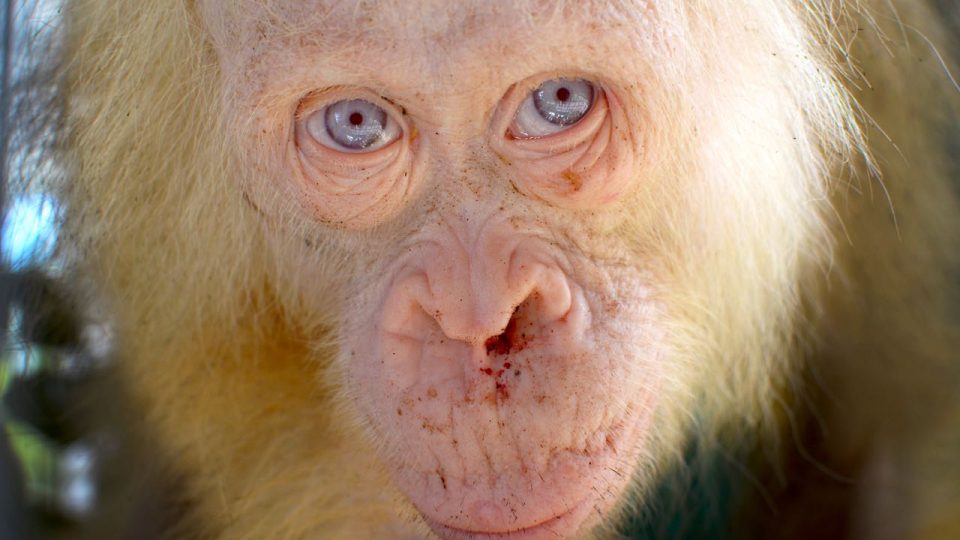A rescue center in Borneo is trying to decide what to do with an albino orangutan whose genes may pose a threat to local populations, should the animal be released into the wild.
Residents of Tenggirang village in Central Kalimantan discovered the creature in an enfeebled state last week after it strayed from its forest home. Borneo’s jungles are rapidly being cleared by plantation and mining interests, especially in the palm oil and coal sectors. Companies generally do what they please amid poor government oversight in a country with stunning biodiversity but where corruption is a plague.
The white orangutan is a female, thought to be around five years old. Residents had intended to keep it as a pet but were dissuaded from the idea by the Borneo Orangutan Survival Foundation, whose staff had been alerted to the scene.
The Bornean orangutan (Pongo pygmaeus) is listed as Critically Endangered on the IUCN’s Red List. So is the Sumatran orangutan (Pongo abelii). Keeping the primates as pets is an all too common — and illegal — practice in the archipelago nation, though the owners tend to be not poor villagers but rather more influential figures such as police, soldiers or politicians, because they can get away with breaking the law.

Life as a pet can warp an orangutan, robbing it of survival skills and sabotaging its chances to return to the wild. The albino is thought to have been only a week away from the forest, raising the possibility of a relatively quick release, provided the BOSF can help it recover from the state of dehydration, malnourishment and infection by parasites in which it was found.
But Jamartin Sihite, CEO of the BOSF, raises a concern: Would releasing the albino harm the species at large by introducing its genetic disorder into an already vulnerable population?
Further study, he said, was needed to determine the best course of action.
Whatever its fate, the creature can count itself lucky already: Many that wander into human settlements run into farmers who treat them as pests to be exterminated. Pellet guns and bamboo spears, often wielded by groups of men, are popular tools for doing so.
“I’ve worked in Kalimantan for 25 years — this is the first time I’ve seen an albino orangutan,” Sihite said.
“It’s not a strange thing — albinoism isn’t a disease.”
But the white primate is vulnerable to sunlight, a perhaps unwelcome trait for a species whose chances of survival grow slimmer by the hour.
This story was originally published by environmental news website Mongabay. You can read the original article here.




